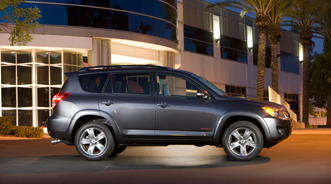Which Automakers Are Successfully Tapping the Hispanic Market?

SOUTHFIELD, Mich. –
With the Hispanic shopper demographic becoming increasingly important, it appears one particular group of automakers is having more success than others in reaching these key consumers. So which brands are showing the most strength when it comes to Latino purchasers?
According to R. L. Polk & Co., Toyota, Honda and Nissan have been implementing various efforts to specifically target this population segment and the ideas are hitting home.
In fact, Polk said Wednesday that close to half (46.4 percent) of new-vehicle registrations from Hispanic shoppers through September have come from this trio.
Particularly strong has been Toyota, which has commanded a 20.3 percent share. After Toyota, Honda was next at 13.9 percent followed by Nissan at 12.2 percent.
Apparently, there has been a decade-long increase in the interest Asian automakers are generating with the Hispanic community.
In fact, for several Asian automakers, the increase in sales to Hispanic shoppers has been more rapid than the increase in overall sales, Polk highlighted.
Reaching this group of shoppers can prove to be quite crucial. Latinos are expected to represent 20 percent of the U.S. population within the next 20 years, Polk said, citing the U.S. Census Bureau.
“Toyota, Honda and Nissan all have specific Hispanic marketing strategies and agencies that focus their marketing efforts to Hispanics,” shared Mark Pauzé, Polk senior solutions consultant.
“Tracking sales to this growing demographic and their loyalty, coupled with a specific marketing strategy has an impact,” he added.
While Asian brands have shown the most success, the domestics also reached the top of the list, albeit not as strongly. The Big 3 was represented by three brands in the top seven (Chevrolet in fourth, Ford at No. 5, Dodge at No. 7). However, the share of these three individual brands represent an aggregate of just 21.2 percent.
Volkswagen, which came in at 2.8 percent, was tops among European brands.
Polk suggested that the Big 3 dedicate more attention to the Latino buyer segment of the population.
“To remain competitive with their Asian counterparts, domestic manufacturers should be working to establish their brands with this important growing demographic group as it increases in size and influence,” officials urged.
Hispanic Segment Expands Quicker than Overall Market
Breaking down the overall data even further, Polk noted that the Hispanic market showed faster growth at 6.5 percent through September than the overall U.S. market at 4 percent.
The share of auto purchases this year commanded by Hispanic consumers (8.7 percent) is stronger than last year (8.5 percent), as well.
Granted, this year’s level is lower than Hispanic shoppers’ share in 2006, which totaled 10.6 percent. However, the latter figure declined in the midst of the overall industry downturn two years ago, Polk indicated. The company pointed out that there has been a more expedient rebound in the Hispanic auto segment this year in comparison to the overall auto recovery.
More Brand Data
Looking at how brands fared in more detail, Buick, in particular, has apparently shown a tremendous gain in its ability to market to Hispanic shoppers. Its sales to this demographic have displayed an 83-percent year-over-year lift, Polk said.
Consider this: In all of Buick’s sales combined, the increase has been 49.7 percent, Polk said.
“Buick has focused on Hispanics because they prefer comfort and amenities in a family car at a reasonable price — a sweet spot for Buick,” Pauzé stated. “Their attention to this market is paying off for them.”
Polk pointed out other brands, in addition to Buick, have also witnessed an increase in sales to Hispanic consumers that is outweighing their overall sales uptick. Among these are Chevrolet, Hyundai, Mazda and Kia.
The company further noted that sales to Latino shoppers have climbed to more than 25 percent for several brands, as well. These brands include Cadillac, Hyundai, GMC, Kia and Infiniti.
The overall sales uptick at Ford and GMC, though, is stronger than the upswing in sales to Hispanic consumers, Polk noted.
Moving over to European brands, Polk said that half of these have either shown growth in sales to the ethnic segment or stayed consistent.
“Volkswagen, Mini and BMW lead, and Audi increased its sales to Hispanics 23.4 percent in the past year, though it continues to represent less than 1 percent of the market,” officials pointed out.
“About half of the European manufacturers are declining in Hispanic market share, and none are growing more with Hispanics than the general population,” Polk added.
Subscribe to receive our daily e-newsletter and never miss the latest industry news, trends, and insights across the used-car and remarketing space.


